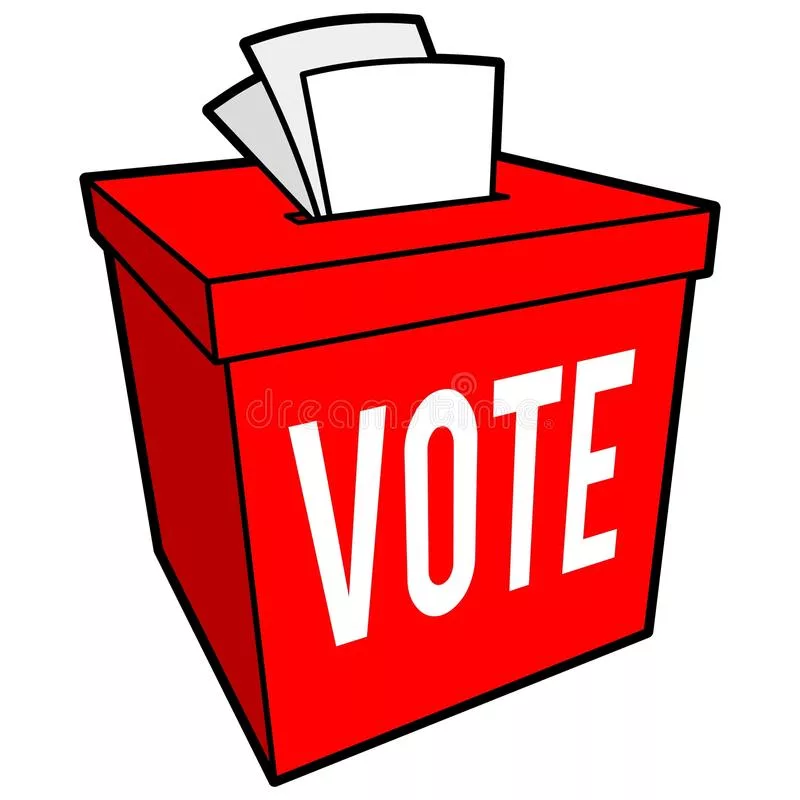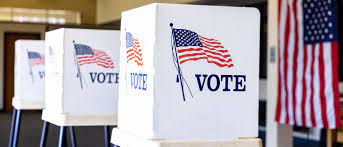
2024: Democracy On the Ballot

“Four score and seven years ago our fathers brought forth on this continent, a new nation, conceived in Liberty, and dedicated to the proposition that all men are created equal… Now we are engaged in a great civil war, testing whether that nation, or any nation so conceived and so dedicated, can long endure…” (Abraham Lincoln, Gettysburg Address, November 19, 1863)
160 years after President Abraham Lincoln made his landmark address on the Gettysburg battlefield — and twelve score and 8 years (248 years) after the “new nation” began to emerge through the Declaration of Independence in 1776 — the United States of America enters the most consequential new year in its history. 2024. Oh, sure, many other years earned the title “consequential” across the decades as this nation has faced countless tests of its resolve to remain that nation of liberty and freedom “so conceived and so dedicated” by the Founders. But the 2024 presidential election is looming at the most severe test yet of the stark choice between continuing the American experiment in democracy or conceding to the preference for authoritarianism that the Founders specifically rejected in their design of the Constitution with its balance of powers among 3 branches of government, including its constraints on the presidency lest that office and its occupant devolve into monarchy or worse.
Democracy is on the ballot this year —- not only in the United States, but in nearly half of the world’s countries also holding national elections — and among the myriad issues that confront our nation and interdependent global village, none is more serious or consequential than the stark choices the electorates must make about who will lead them and whether those leaders will protect or abridge democracy. Preserving Democracy is the foundation for all of the other choices we will make as a free people.
“…we here highly resolve … that this nation, under God, shall have a new birth of freedom — and that government of the people, by the people, for the people, shall not perish from the earth.” (Abraham Lincoln, November 19, 1863 at Gettysburg)
For the last few months I’ve been reflecting on the fact that the Civil War never really ended in this country. Yes, Confederate General Robert E. Lee surrendered at Appomattox and the United States entered the era known as Reconstruction. But those who yearned for the “lost cause” remained an active force, albeit mostly underground in certain parts of the South — except for those times when the brutal fires of racial hatred surged in lynchings and denial of the most basic of civil and human rights. The shooting war became a legal battle across the next century and more, with hard-won cases assuring the rights of African Americans, legal principles of equality enacted into federal and state legislation, and advances in employment and education for Black persons. Those advances are now in full retreat as state governors and legislatures denounce and penalize schools for “diversity, equity and inclusion” programs, attack “critical race theory” scholarship, and redraw voting lines to repress the power of the Black Vote. The Supreme Court has ended affirmative action in college admissions, and cases are wending through courts to do the same in employment.
The rapid rollback of racial justice is not the only issue. From women’s rights to the humane treatment of transgender persons to climate change to border policy, the impulse to defer to authoritarian solutions is growing. A growing number of governors believe they can even dictate what college faculty teach, something that once only existed in the most tyrannical regimes elsewhere. This nation fought a Revolution to get out from under the monarch; millions of Americans fought in wars to confront and defeat fascism and authoritarian regimes elsewhere. Americans once carried the Stars & Stripes high as they liberated concentration camps and oppressed peoples around the world. Not any more. The world sees the U.S. in decline and powerless to govern its own affairs. All of our history, all of those sacrifices, all of the values we once held dear now seem to be at risk in this election year.
Certainly, it is the essence of Democracy that each individual citizen may vote for any candidate they choose, and we must respect every decision as an exercise in freedom. No school or college may suggest how anyone should vote. But we do have an obligation to educate our students to participate fully and robustly in the responsibilities of citizenship, with voting as the chief responsibility and most precious right of all.
As we move into 2024 at Trinity, we invite all students, faculty and staff to engage in active learning about all of the issues at stake this year in the U.S. and the many countries represented in our community. We will encourage forums and symposia on the critical issues at stake in domestic and international elections, and the role of citizens in determining the future shape of nations through the choices we make at the ballot box. “2024: Democracy On the Ballot” is an ongoing project through which we invite you to develop and present your ideas for how to ensure the continuing vitality of Lincoln’s vision “…that government of the people, by the people, for the people, shall not perish from the earth.”
Send me your thoughts and ideas for programming by commenting on this blog or via email at president@trinitydc.edu